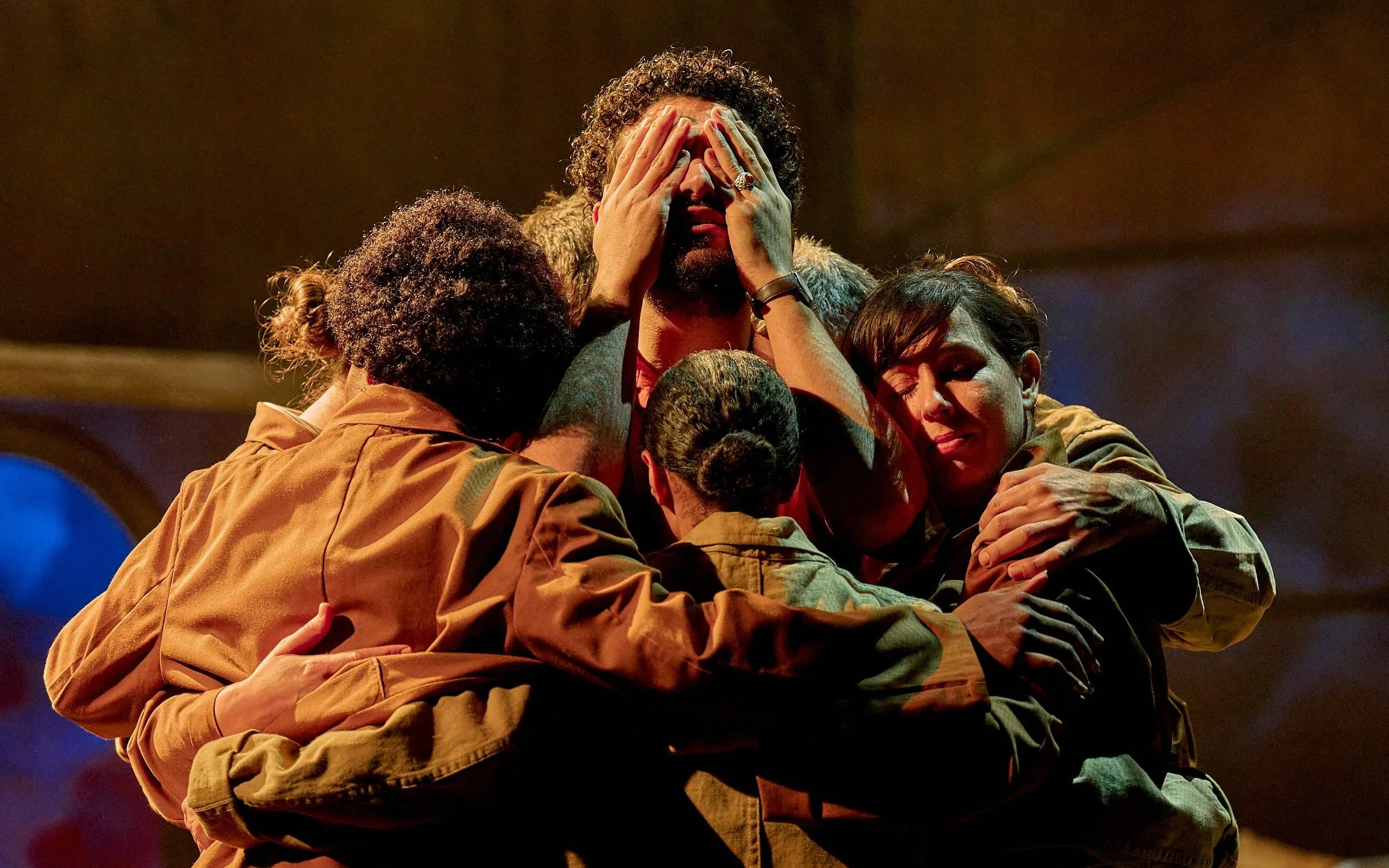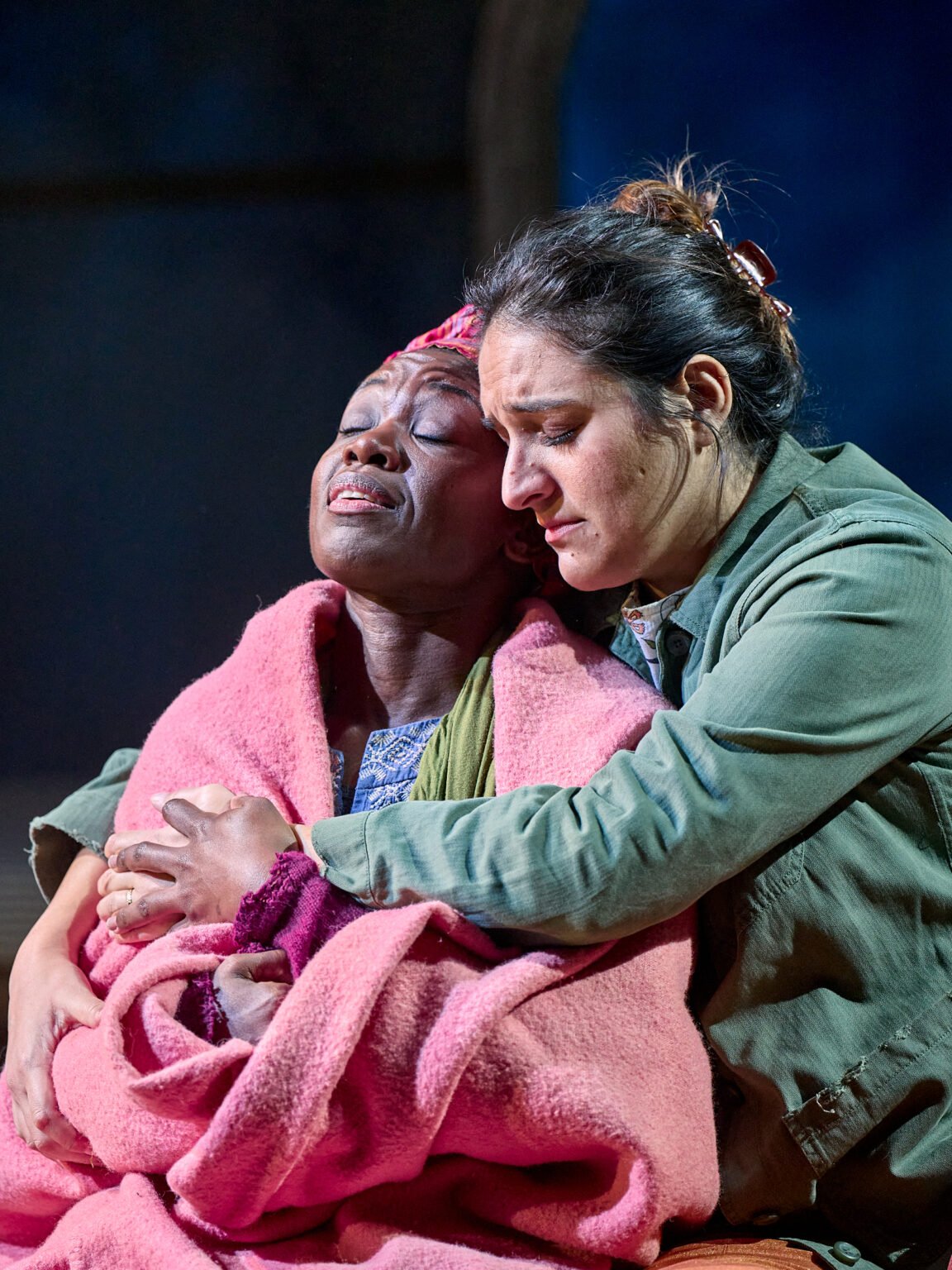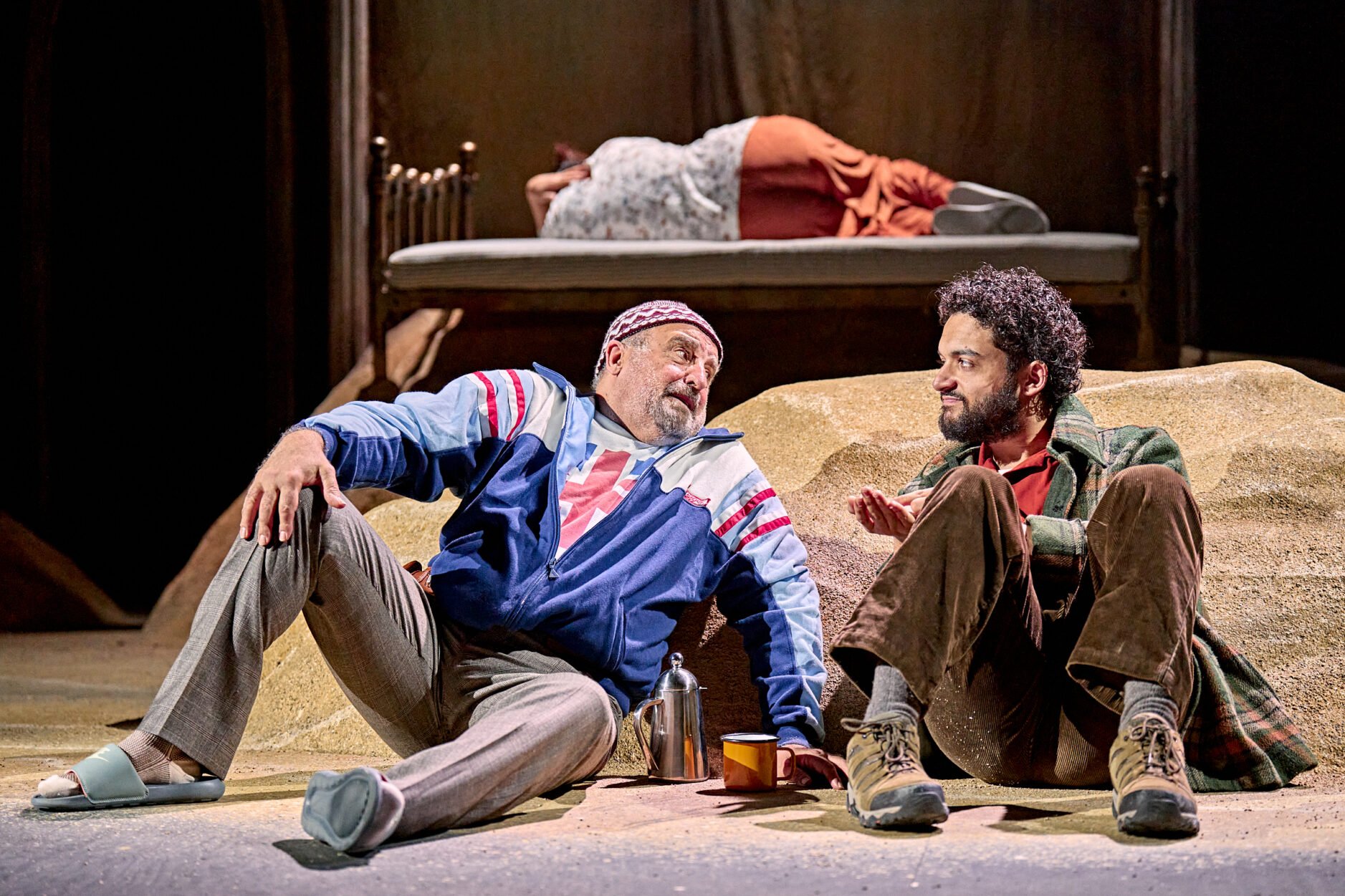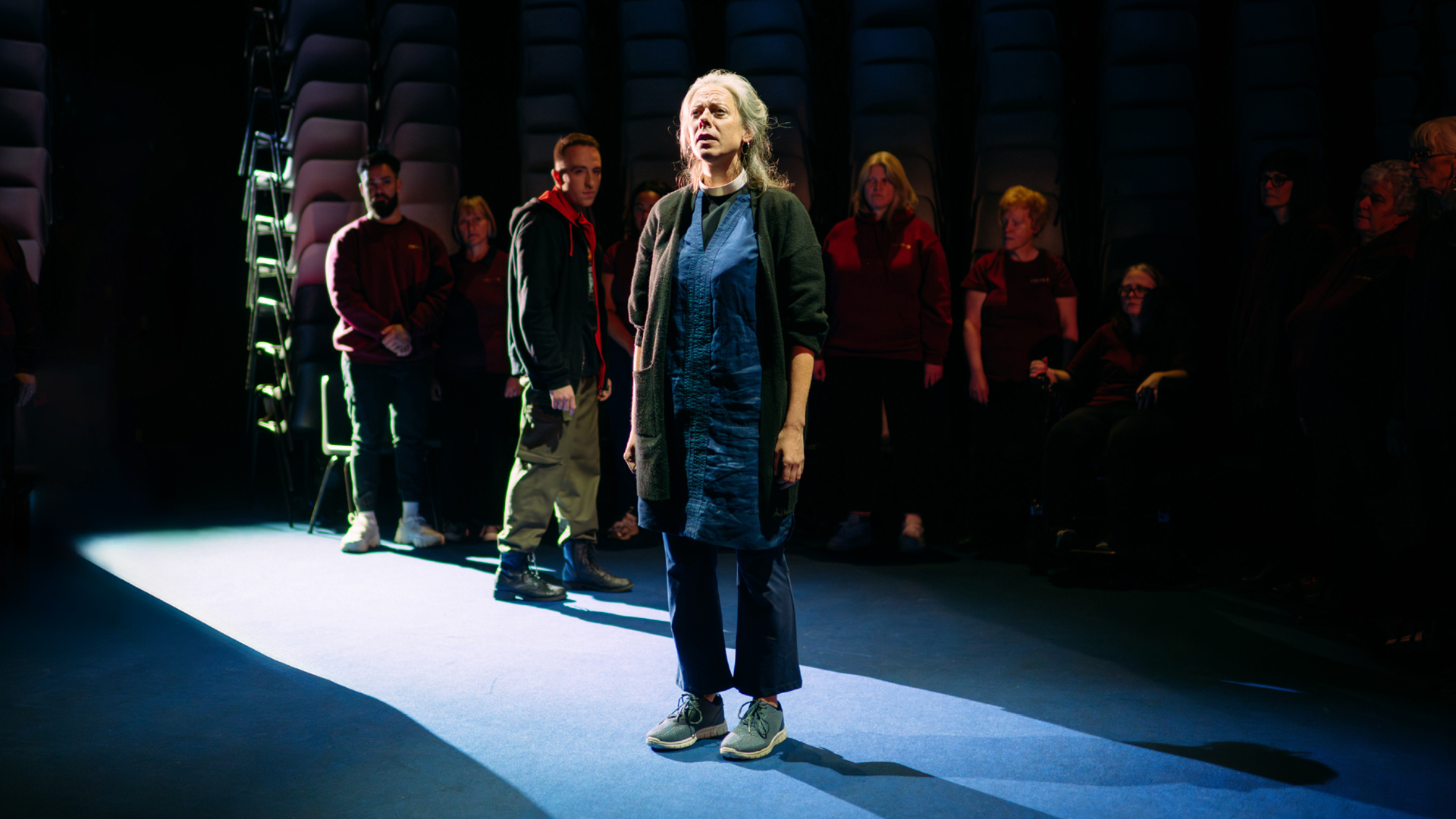REVIEW | The Beekeeper Of Aleppo, Nottingham Playhouse
★★★★★
Reviewer - Natasha
*Disclaimer: Gifted tickets in return for an honest review.
The Beekeeper of Aleppo contains themes of war, violence, murder, loss of a child, references to sexual abuse, mental illness, and forced migration. The show also contains strobe lighting, flashing light, haze and sudden loud noises.
This wonderful tale of love, loss and belonging had me entranced from the get-go. Based on the best-selling novel, the Nottingham Playhouse team have combined set design, movement and the fabulous directing skills of Miranda Cromwell together with the source material to craft together an outstanding production. This fictionalised account of beekeeper Nuri, his wife Afra and their experiences in and beyond war-torn Aleppo provides a fascinating study of grief, migration and dislocation. (Despite the darkness of some of themes, however, as in life the show is sprinkled with touches of wry comedy that bring occasionally levity to the proceedings.)
From navigating the Kafka-esque bureaucracy of seeking asylum to mourning the loss of loved ones, the actors excel, with a series of utterly believable performances from both the central and ensemble cast. The show is undeniably held together by Alfred Clay in the pivotal role of Nuri, onstage throughout and demonstrating immense range in a remarkable and nuanced performance. The dialogue is brilliantly written - sometimes poetic, sometimes political - and Clay absolutely does it justice. He, Roxy Faridany as Afra and others in the company build on the script, however, by conveying the inner lives of the characters through tone, movement, stillness, simple touch and/or the lack of it. Similarly, Elham Mahyoub’s wonderful turn as Mohammed exquisitely portrays the requisite childlike demeanours both bodily and vocally, ensuring the character stands out as both a brightness in the dark and a captivating focus for Nuri.
The plot is interesting and intricate; it holds the audience’s attention throughout. Writers Matthew Spangler (whose previous work includes an adaptation of The Kite Runner) and Nesrin Alrefaai have produced a hard-hitting masterpiece. And they have located relationships at the heart of it – friendships, kinship, marriage and parenthood. We get to see the vulnerability of the characters and the way their connections both sustain and diminish them. They bend, and sometimes fracture; the audience are on the edge of their seats to know if they will mend. Like the bees, who provide a significant metaphor, the people are part of a community, trying to survive and possibly thrive despite the challenging circumstances in which they find themselves.
With Ruby Pugh as Designer, the staging is equally impressive. The minimalist, static set ostensibly stays the same, but manages to superbly convey a sense of place, representing amongst other locations, dusty Syria, accommodation for asylum seekers in England, and Victoria Square in Athens. Shifts between time and countries occur often and are clearly and cleverly done, aided by glorious visual projection and sonic imagery from Ravi Deepres and Tingying Dong. Simulated skies, bees, waves and television pixels help transport the audience to various elsewheres; the backdrop's removal enforces the revealed, stark reality of Nuri’s grief. Perilous journeying across a seascape is a particularly effective device, through a superb combination of design, choreography and Ben Ormerod's lighting. From the opening music to the cries of gulls, the soundtrack is well-chosen and enhances the mood. Costuming is contemporary, non-elaborate and perfectly suits the piece.
In fact, for once I am actually struggling to think of any ways in which I think a show could be improved. Yes, we could argue that the story represents non-Western refugees from a Western perspective, yet the lived, anthropological research of Christy Lefteri, herself the daughter of refugees, means a vital story is told with the aid of playwrights who specialise in this genre. The play also holds up a fiercely reflective and critical lens to the attitudes and behaviours of those purporting to help the displaced. So yes, it seems I have nothing but praise for this production. The staging and acting prowess of the entire team involved is extremely special. Themes of social justice, displacement and the impact of war combine to primarily educate but also, through the medium of theatre, entertain. What emerges is a profoundly moving triumph, that I strongly recommend watching.
The Beekeeper of Aleppo is now showing at Nottingham Playhouse until Saturday 25 February, and Liverpool Everyman Playhouse 1 March - Sat 11 March.








